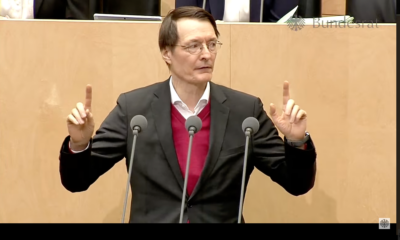Via Business of Cannabis
The head of Malta’s cannabis regulatory body has confirmed reports that the country’s first two cannabis associations have been granted licences, ‘in-principle’.
Two years after Malta first moved to allow the consumption and cultivation of cannabis for adult-use, the Authority for the Responsible Use of Cannabis (ARUC) has issued its first licences, marking a major milestone for the country’s liberalisation campaign.
According to the head of the ARUC, Leonid McKay, who spoke with the Times of Malta, a number of other associations are ‘currently in the final stages of vetting and authorisation’.
In June it was revealed that 26 groups had now applied for licences to launch a cannabis association, but that number is now thought to be higher, with the first clubs expecting to be launched in full in Q1 next year.
READ MORE: Malta – Advocates emphasise positive effects of cannabis reform
‘Licence in principle’
While this marks a long-awaited step forward for the associations, it does not yet allow them to begin cultivating cannabis for their members.
Instead, the licence enables them to begin the construction of their growth facilities. Once they are completed, ARUC will conduct inspections to ensure they meet regulations.
Only when the facilities have been approved, can ‘operational licences’ for cultivation be issued.
Mr McKay explained: “The in-principle licence approves the proposed operational setup. The operating permit will be issued when the associations complete their setup and the authority confirms that it is compliant.”
The news comes just over two months after ARUC published a revised set of ‘fine tuned’ rules for cannabis associations following criticism from prospective associations that the barriers to entry were far too high.
While the regulator was praised for taking on board criticisms and actively making changes amid its ‘stakeholder consultation process’, industry stakeholders said they had expected greater progress in the rollout of Malta’s cannabis associations by this point.
In June, when the newly revised rules were announced, Releaf Malta’s Andrew Bonello told Business of Cannabis that considering ARUC was set up over a year and a half ago, ‘one would not only expect many more applicants but also a healthy number should be up and running by now’.
“However, we argue that the core principles of the reform are respected, acting in the best interest of the community with efforts genuinely focused on addressing social justice and human rights,” he added.
According to recent local news reports, the first cannabis associations could be up and running by March 2024.
A reported 26 licence applications had been submitted by June this year covering all five different sized and licence groups, though the early applications were apparently weighted towards the larger sizes.
On-site consumption
A number of regulations remain contentious for the prospective associations and commentators alike.
Last week, leading drugs policy expert and Programme Director for Drugs and Democracy at the Transnational Institute Martin Jelsma criticised the continued restrictions on consumption of cannabis on the premises of Maltese associations.
Following a roundtable discussion featuring a number of drugs policy experts, Mr Jelsma told the Times of Malta : “It was an issue that came up in several of our meetings these past two days, and the social role of associations should be promoted as going beyond a place where members get cannabis to take home.”
He went on to criticise the authorities’ ‘absurd’ attitudes towards CBD, which continues to see individuals penalised.
“CBD should not be under any control at all. The World Health Organization did a serious review of all the available evidence, and they clearly said that CBD should not be under international control… there’s no reason to control it,” he continued.
Despite the criticisms, Mr Jelsma said Malta’s strategy represented one that other countries could and should take after, stating that their decision to launch a non-commercial system was ‘a very wise choice’.
This article was originally published by Business of Cannabis and is reprinted here with permission.
Home » News » Malta issues first two Cannabis Association licences ‘in principle’

 News6 months ago
News6 months ago
 Science5 months ago
Science5 months ago
 Industry6 months ago
Industry6 months ago
 News6 months ago
News6 months ago
 News5 months ago
News5 months ago
 News5 months ago
News5 months ago
 Health5 months ago
Health5 months ago
 Health3 months ago
Health3 months ago












